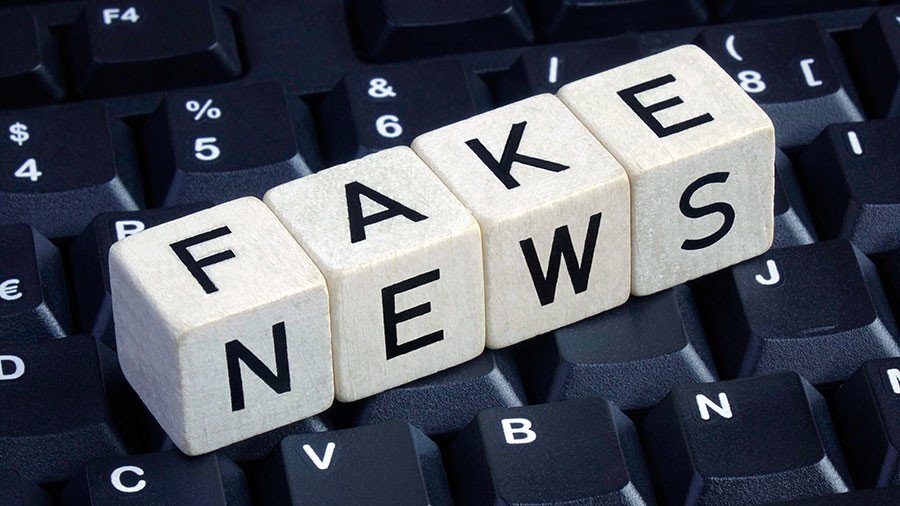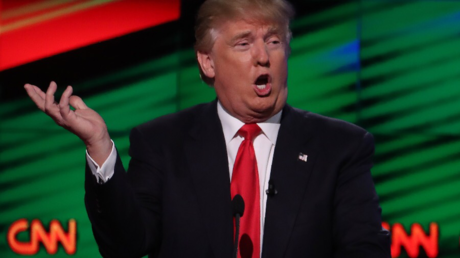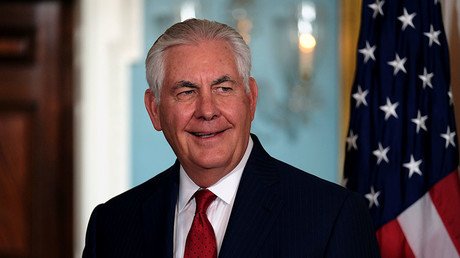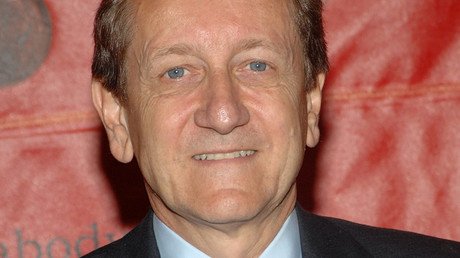Trump’s ‘fake news’ mantra becomes Norway’s word of the year

Norway has adopted a new term into its official lexicon, inspired by the one and only Donald Trump. The phrase "fake news" has now been formally recognized by the country's Language Council, which cited its recent "explosion."
“The word [phrase] is not completely new, but its use has exploded over the last year,” language researcher Ole Vage, a senior advisor to the Language Council of Norway told the NTB news outlet. He added the term was "the most used new word amongst this year's (US presidential) candidates."
“It is a word [phrase] that has set the agenda and was given a lot of attention during the 2016 US election, and that attention has continued,” language researcher Bente Karlsnes told broadcaster NRK.
Trump propelled “fake news” into the spotlight during his campaign, and as president, he continues to use it on a weekly, sometimes daily, basis. "Another false story, this time in the failing @nytimes, that I watch 4-8 hours of television a day – wrong! Also, I seldom, if ever, watch CNN or MSNBC, both of which I consider fake news…," Trump tweeted Monday.
Another false story, this time in the Failing @nytimes, that I watch 4-8 hours of television a day - Wrong! Also, I seldom, if ever, watch CNN or MSNBC, both of which I consider Fake News. I never watch Don Lemon, who I once called the “dumbest man on television!” Bad Reporting.
— Donald J. Trump (@realDonaldTrump) December 11, 2017
And before that, on Sunday, "Very little discussion of all the purposely false and defamatory stories put out this week by the fake news media."
Very little discussion of all the purposely false and defamatory stories put out this week by the Fake News Media. They are out of control - correct reporting means nothing to them. Major lies written, then forced to be withdrawn after they are exposed...a stain on America!
— Donald J. Trump (@realDonaldTrump) December 10, 2017
The Language Council of Norway, in conjunction with Norwegian School of Economics professor, Gisle Andersen, identifies a new word or phrase to be recognized each year. It can be completely new, or a modern word which has made an impact on the year's vocabulary. The process of selecting the word or phrase also involves data from major national and regional newspapers.
The adoption of the expression “fake news” hasn't been accepted by everyone, though, including Kristoffer Egeberg, the head of faktisk.no, a site which aims to fact-check news and prevent the spread of fictional messages. "The expression has become very well known in a short period of time, but at the same time it has been broken and twisted by the American president. Donald Trump uses it about real news he does not like," Egeberg said, as quoted by NRK.
Like it or not, Trump’s use of the phrase has undeniably made waves across the US and the rest of the world. It's been turned into everyday vocabulary, and has become a running joke on Saturday Night Live. In February, the late-night comedy show famously featured a sketch of former White House Press Secretary Sean Spicer – played by Melissa McCarthy – putting CNN in “jail” for misbehaving. “We’re not fake news!” the CNN journalist shouts from behind bars.
Real fake news
But not all of Trump’s “fake news” assertions have been incorrect, particularly when it comes to CNN. The outlet reportedly apologized to Trump just days ago, over a debunked report which claimed the Trump campaign had secret advance access to hacked Democratic National Committee (DNC) emails from WikiLeaks. However, the network got the date of an email wrong, which was central to their story.
“CNN apologized a little while ago,” Trump said during a Pensacola rally last Friday, adding that CNN “should’ve been apologizing for the last two years.” Three CNN journalists were also forced to resign over the summer following the retraction of a story on an alleged Congress investigation into a “Russian investment fund with ties to Trump officials.”
A Washington Post reporter also apologized to the president over the weekend after tweeting a photo of an empty venue ahead of a rally in Pensacola, Florida. "Packed to the rafters," the caption said, referencing a previous tweet by Trump which said the "arena was packed to the rafters, the crowd was loud."The reporter apologized on Twitter after Trump demanded he do so. The journalist admitted he "got it wrong," but noted that the photo was on his personal account, not the Washington Post's.
But of course, fake news wouldn’t be fake news if Russia and its alleged meddling claims are not woven into the fabric somehow. RT recently took the liberty of compiling some of the worst offenders when it comes to Kremlin-bashing. From CNN to ABC News, the list of guilty media outlets is anything but small.
One rather unorthodox take on misreporting has been voiced by the editor of The Atlantic, who told CNN Monday, that factually inaccurate reports are simply a by-product of fighting Trump’s “system of lies,” and that such mistakes are “precisely the reason people should trust the media.”
READ MORE: True journalism is about facts and evidence… except when it’s about Russian meddling
As the struggle to determine what’s real and what’s not continues, the UK’s press regulator has developed a log to fight fake news. Papers which are members of the watchdog can use it, despite the fact that many outlets have already been accused of spreading false news stories.















